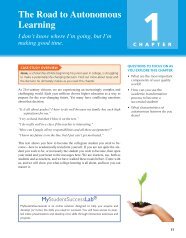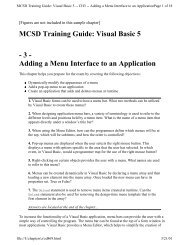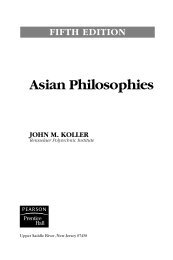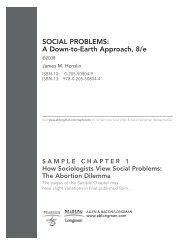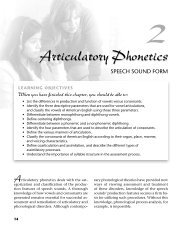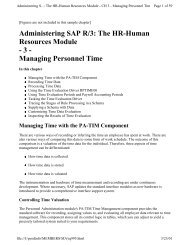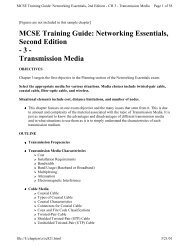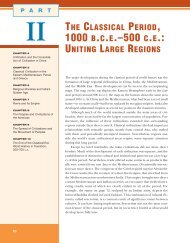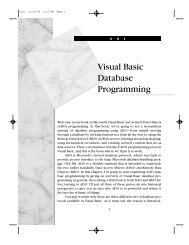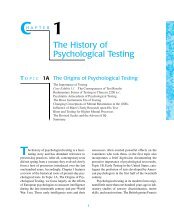CULTURE, language, AND COGNITION
CULTURE, language, AND COGNITION
CULTURE, language, AND COGNITION
You also want an ePaper? Increase the reach of your titles
YUMPU automatically turns print PDFs into web optimized ePapers that Google loves.
GA305c05.qxd 4/30/2004 11:26 AM Page 116<br />
116 culture, Language, and cognition<br />
first three grades and continues through sixth grade. This example of Japanese<br />
learning to read and write shows very nicely the interaction of different levels<br />
of the ecological system in this aspect of <strong>language</strong> acquisition. Specifically,<br />
family and peers in the microsystem aid the learning of Hiragana, as do extended<br />
family and families of peers in the exosystem. In combination, these<br />
systems assert a combined influence in the mesosystem. When learning<br />
Katakana, school and peers are the driving influence in the microsystem while<br />
government-designed curricula (in the exosystem) and the cultural value<br />
placed on literacy (in the macrosystem) exert additional influences as one<br />
moves to the outer levels of the ecological system. An ecological system vastly<br />
different from the Japanese is described by Pretorius and Naude (2002). In<br />
their study of children (5.5–7 years old) in South African townships they<br />
showed that the children’s literacy and numerical skills were very poorly developed.<br />
The authors speculate that this may be because of the relative lack of<br />
emphasis on literacy both in the larger culture (child rearing practices that do<br />
not facilitate parental involvement in literacy development) and in the family<br />
(little exposure to reading and writing experience in the home).<br />
� ADOLESCENCE <strong>AND</strong> EARLY ADULTHOOD<br />
Formal Operational Thinking<br />
Piaget’s stage of formal operations also has been studied cross culturally, and<br />
it is the view of some researchers that individuals in many societies never<br />
achieve this type of thinking. In fact, a study conducted among Nigerian adolescents<br />
by Hollos and Richards (1993), using Piagetian tasks, revealed little<br />
use of formal operational thinking.<br />
One of several tasks frequently used to measure cognitive development<br />
in the stage of formal operations is the pendulum problem. In the pendulum<br />
problem, individuals are shown several pendulums of different weights that<br />
are attached to different lengths of string. When the pendulums are swung,<br />
individuals are asked to figure out what determines the speed at which the<br />
pendulums swing back and forth. For example, is it the weight, the height<br />
from which it is dropped, the force with which it is pushed, the string’s<br />
length, or perhaps a combination of all of these? According to Inhelder and<br />
Piaget (1959), children in the stage of formal operations should be able to<br />
solve the pendulum problem through the process of elimination. Several<br />
cross-cultural studies have utilized this problem to observe cognitive changes<br />
in formal operations. For example, in studies carried out among adolescents<br />
in New Guinea, no subjects performed at the formal operational level (Kelly,<br />
1977). Similarly, few adolescents showed formal operational thought when<br />
tested in Rwanda (Laurendeau-Bendavid, 1977). On the other hand, among<br />
Chinese children exposed to the British education system in Hong Kong, for-



